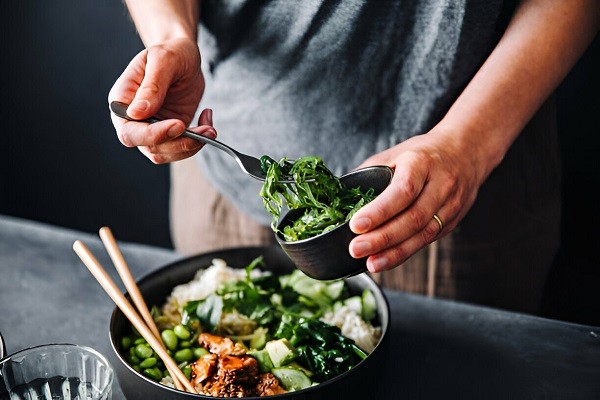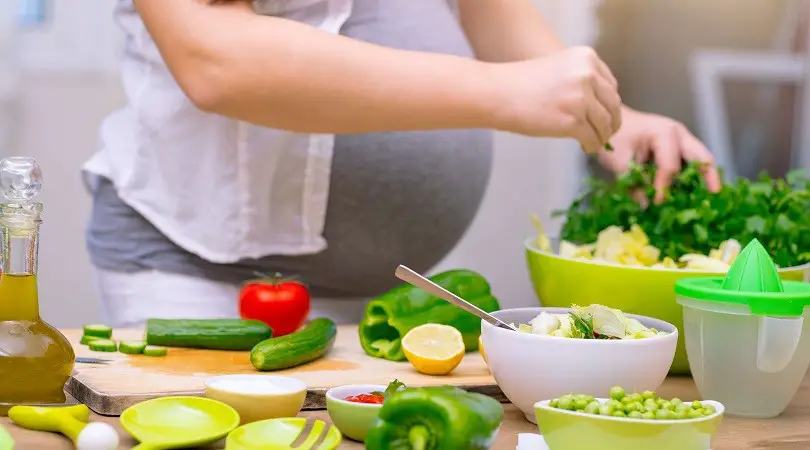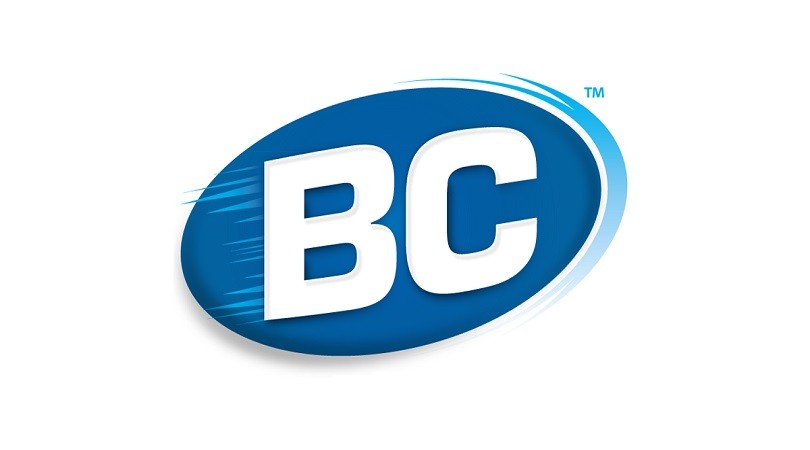Last Updated on January 6, 2025
Yes, it is generally safe to eat seaweed while pregnant, but moderation is key to avoid excessive iodine intake. Seaweed is a nutrient-dense food that contains iodine, which is essential for the brain development of the fetus.
However, consuming too much iodine during pregnancy can be harmful. Seaweed is also high in vitamins, minerals, and antioxidants, making it a beneficial addition to a pregnant woman’s diet. Nevertheless, it is recommended to consult with a healthcare provider before adding seaweed to your pregnancy diet to ensure that it aligns with your specific health needs.
Taking these precautions will help you enjoy the health benefits while protecting the well-being of you and your baby.

Seaweed: A Nutritional Powerhouse
Seaweed, a powerhouse of nutrients, is safe to eat during pregnancy. Its high levels of vitamins, minerals, and omega-3 fatty acids can provide numerous health benefits for both the mother and the developing fetus. Embrace this nutritious marine plant as part of a well-balanced diet to support a healthy pregnancy.
Seaweed is not only a unique and flavorful addition to your diet, but it’s also a nutritional powerhouse, especially for pregnant women. Packed with essential vitamins and minerals, seaweed has numerous benefits that can support a healthy pregnancy journey.
Rich Source Of Essential Vitamins And Minerals
Including seaweed in your diet during pregnancy can offer you a wide range of essential vitamins and minerals, including:
- Iron: Seaweed is an excellent source of iron, which is essential for the production of red blood cells and preventing iron-deficiency anemia during pregnancy.
- Calcium: Seaweed contains calcium, which is vital for developing your baby’s bones and teeth.
- Vitamin C: This vitamin helps in strengthening the immune system, supporting the absorption of iron, and aiding in collagen production.
- Vitamin A: Seaweed is rich in vitamin A, which is important for good vision, proper fetal development, and a healthy immune system.
High In Iodine, Crucial For Fetal Development
Iodine is an essential mineral for proper fetal brain development and thyroid function. Seaweed is one of the best dietary sources of iodine, providing you with a natural and easily absorbable form of this crucial nutrient. Consuming adequate iodine during pregnancy can help prevent developmental issues and support your baby’s cognitive function.
Contains Omega-3 Fatty Acids For Brain Development
Omega-3 fatty acids are vital for healthy brain development in babies. Seaweed is a plant-based source of these essential fatty acids. Including seaweed in your diet while pregnant can ensure that you are providing your baby with the necessary nutrients for optimal brain development.
Omega-3 fatty acids also have anti-inflammatory properties and can support overall well-being during pregnancy.
To sum it up, consuming seaweed during pregnancy can provide you with a variety of essential vitamins, minerals, iodine, and omega-3 fatty acids. However, it’s essential to consume seaweed in moderation and ensure its quality and safety. Adding small amounts of seaweed to your meals can be a great way to enhance your nutritional intake during this special time in your life.
Remember to consult with your healthcare provider before making any significant changes to your diet.
Potential Risks Of Seaweed Consumption
Seaweed consumption during pregnancy may pose potential risks due to its high iodine content. While iodine is essential for fetal brain development, excessive intake can have adverse effects. It is recommended to consult with a healthcare professional before including seaweed in your diet while pregnant.
Seaweed is a nutritious and popular food, but if you’re pregnant, you may be wondering if it’s safe to consume. While seaweed offers many health benefits, there are potential risks to consider. In this section, we will explore two important factors: mercury and heavy metal contamination, as well as excessive iodine intake and its impact on thyroid function.
Mercury And Heavy Metal Contamination
- Seaweed can absorb metals from the water in which it grows, including mercury, lead, and arsenic.
- Mercury is a potent neurotoxin that can harm the developing nervous system of a fetus.
- Heavy metal contamination in seaweed can also pose health risks for pregnant women, including potential damage to organs and impaired fetal development.
- Consumption of contaminated seaweed during pregnancy should be limited to avoid the harmful effects of these metals.
Excessive Iodine Intake And Its Impact On Thyroid Function
- Seaweed is known for its high iodine content, which is essential for healthy thyroid function.
- However, excessive iodine intake during pregnancy can lead to thyroid dysfunction, such as hypothyroidism or hyperthyroidism.
- Hypothyroidism during pregnancy can increase the risk of complications like preeclampsia, premature birth, and low birth weight.
- On the other hand, hyperthyroidism can have detrimental effects on both the mother and the developing baby.
- It is crucial for pregnant women to maintain a balanced iodine intake and avoid excessive consumption of seaweed to support optimal thyroid health.
While seaweed can provide valuable nutrients, pregnant women need to be mindful of potential risks associated with its consumption. The presence of mercury and heavy metals, as well as the risk of excessive iodine intake, can have adverse effects on both the mother and the developing baby.
Therefore, it is wise for pregnant women to seek guidance from their healthcare provider and consume seaweed in moderation to ensure a safe and healthy pregnancy.

Safety Guidelines For Eating Seaweed While Pregnant
Discover the essential safety guidelines for enjoying seaweed during pregnancy. Find out if it’s safe to include this nutrient-rich food in your diet while expecting and understand the potential risks and benefits. Stay informed and make the best choices for you and your baby’s health.
Seaweed is a nutritious and popular food choice that many people enjoy, but what about during pregnancy? Can you safely incorporate seaweed into your diet while expecting? Let’s explore safety guidelines for eating seaweed while pregnant to help you make informed decisions about your dietary choices.
Moderation Is Key: Recommended Intake Levels
- It is recommended to consume seaweed in moderation during pregnancy.
- The exact amount of seaweed you can safely consume may vary, so it’s best to consult with your healthcare provider or a registered dietitian.
- As a general guideline, aim for a moderate intake and avoid excessive consumption of seaweed.
Choosing Safe And Uncontaminated Seaweed Products
- When it comes to selecting seaweed products during pregnancy, it is crucial to choose brands that prioritize safety and quality.
- Look for organic and sustainably sourced seaweed products to minimize the risk of exposure to harmful chemicals and contaminants.
- Check the product labels for any certifications, such as being free from heavy metals and pesticides.
- Opt for trusted and reputable brands that adhere to strict quality control measures.
Cooking Methods To Reduce Potential Risks
- Proper cooking methods can help reduce potential risks associated with consuming seaweed during pregnancy.
- Thoroughly rinse seaweed before cooking to remove any sand, dirt, or traces of sea salt.
- Boiling seaweed can help remove excess salt and certain compounds that may interfere with iodine absorption.
- Avoid consuming raw or uncooked seaweed, as it may contain harmful bacteria or parasites that can pose risks during pregnancy.
- If you’re unsure about how to cook seaweed, consider incorporating it into soups or stir-fries, where it can be cooked alongside other ingredients.
By following these safety guidelines, you can enjoy the benefits of seaweed while minimizing any potential risks during pregnancy. Remember to consult with your healthcare provider or a registered dietitian for personalized advice based on your specific dietary needs and health status.
Delicious Ways To Incorporate Seaweed Into Your Pregnancy Diet
Discover delicious ways to incorporate seaweed into your pregnancy diet, while addressing the question of whether it is safe to eat seaweed during pregnancy. Boost your nutrient intake with seaweed-infused recipes that are both healthy and satisfying.
Seaweed is not only safe to eat during pregnancy but also packed with essential nutrients that can support the health and development of both you and your baby. Incorporating seaweed into your pregnancy diet can be a delicious and nutritious choice.
Here are some creative and tasty ways to enjoy seaweed:
Seaweed Salad Recipes And Variations
- Seaweed salad with sesame dressing: Mix together fresh seaweed, sesame oil, soy sauce, rice vinegar, and a hint of ginger for a refreshing and flavorful salad.
- Cucumber and seaweed salad: Combine thinly sliced cucumbers with seaweed, rice vinegar, sesame oil, and a touch of honey for a crunchy and tangy salad option.
- Wakame and tofu salad: Mix cooked wakame seaweed with cubed tofu, red bell peppers, scallions, and a light soy-ginger dressing for a filling and nutritious salad.
Seaweed Snacks And Wraps As Nutritious Options
- Roasted seaweed snacks: Enjoy crispy sheets of roasted seaweed as a guilt-free and nutrient-packed snack. You can find them in various flavors like sea salt, wasabi, or sesame.
- Seaweed rice balls: Wrap a small amount of cooked rice and your favorite fillings like avocado, cucumber, or cooked chicken in a sheet of nori seaweed for a tasty and convenient snack or light meal.
- Seaweed wraps: Use nori sheets as a wrap for your favorite sandwich or taco fillings. It adds a unique flavor and boosts the nutrient content of your meal.
Adding Seaweed In Soups, Stews, And Stir-Fries
- Miso soup with seaweed: Enhance the flavor and nutrient profile of your miso soup by adding seaweed like wakame or kombu. It adds a delightful texture and a mild umami taste.
- Seaweed in vegetable stews: Incorporate dried seaweed like kombu or dulse in vegetable stews for added richness and a boost of minerals and vitamins.
- Seaweed stir-fries: Sauté mixed seaweed, such as kombu, wakame, and nori, with your favorite vegetables and protein for a flavorful and nutritious stir-fry option.
Remember, seaweed can vary in taste and texture, so feel free to experiment with different types and recipes to find the ones you enjoy the most. Just ensure you consume seaweed in moderation and opt for organic and sustainably sourced varieties whenever possible.
So go ahead and indulge in the delightful flavors and nutritional benefits that seaweed has to offer during your pregnancy journey.
Frequently Asked Questions
Can You Eat Seaweed Snacks While Pregnant?
Yes, it is safe to eat seaweed snacks during pregnancy.
Can You Eat Dried Seaweed While Pregnant?
Yes, you can eat dried seaweed while pregnant, as it is a nutritious and safe option.
Is Sushi Seaweed Good For Pregnancy?
Yes, sushi seaweed is good for pregnancy due to its high nutritional value and beneficial vitamins.
Who Should Avoid Eating Seaweed?
People with iodine allergies or thyroid disorders should avoid eating seaweed.
Can Pregnant Women Eat Seaweed?
Yes, pregnant women can safely eat seaweed in moderate amounts as part of a balanced diet.
Conclusion
Including seaweed in a pregnancy, diet can offer a wide range of benefits. Its nutrient-rich composition, especially its high iodine content, can contribute to the healthy development of the baby’s brain and nervous system. Additionally, seaweed is a great source of vitamins, minerals, and antioxidants that can support overall maternal health.
However, it is important to consume seaweed in moderation and choose varieties that are low in heavy metals and contaminants. As with any dietary changes during pregnancy, it is crucial to consult with a healthcare provider before incorporating seaweed into the diet.
Overall, with proper precautions, enjoying seaweed in pregnancy can be a safe and nutritious choice. So, go ahead and indulge in your favorite seaweed dishes while expecting, knowing that you are nourishing yourself and your little one with the goodness of the ocean.











